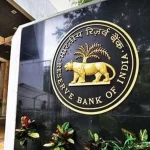Pakistan’s equity markets took a nosedive on April 24, rattled by fresh geopolitical tensions with India following the Pahalgam Terror Attack. In early morning trade, the Karachi Stock Exchange’s benchmark KSE-100 index plunged as much as 2.12 per cent, dropping nearly 2,500 points. The reaction sent a clear signal that investors are bracing for fallout.
The Trigger: Kashmir Attack and Indian Retaliation
The sell-off came just two days after the brutal terror attack in Baisaran, near Pahalgam in Jammu and Kashmir, where 26 people, most of them tourists, were killed. The picturesque hill town, often dubbed “Mini Switzerland,” was the site of a tragedy that has since sparked a firm response from India.
India’s Cabinet Committee on Security (CCS) met soon after and cleared a set of retaliatory measures aimed directly at Pakistan. These include suspending the 1960 Indus Waters Treaty, a long-standing water-sharing agreement, and immediately closing the Attari land border post. Both actions, if implemented, could further strain already tense bilateral ties.
Market Reacts to Uncertainty
As news of India’s planned response spread, investor sentiment in Pakistan turned sharply negative. At its lowest point, the KSE-100 index was down 2,485 points. By 2 PM IST, the market had recovered slightly but was still trading 1.31 percent lower at 115,693.72. The partial rebound did little to ease market nerves over what might come next.
This marked the second straight session of losses for the Karachi Stock Exchange.
IMF Woes Add to the Pressure
Geopolitics wasn’t the only concern on investors’ minds. On Wednesday, the market had already shed 1,204 points after the International Monetary Fund (IMF) revised Pakistan’s GDP growth forecast for FY25 down to 2.6 percent. The IMF cited ongoing fiscal pressures and external vulnerabilities, which added another layer of anxiety to an already cautious market environment.
A Sharp Turn from a Stellar 2024
The current turbulence is a sharp contrast to the market’s performance earlier in the year. In 2024, Pakistan’s stock market had delivered a remarkable 84 percent return, ranking among the best globally. Brokerage Intermarket Securities had even projected a 40 percent upside for the KSE-100 in 2025.
That optimistic outlook now seems clouded by the dual concerns of geopolitical instability and economic fragility.
Whether this is a short-term dip or the start of a deeper correction remains uncertain. For now, investors in Pakistan are watching developments in New Delhi and Islamabad with growing concern.
Also Read: India’s Indus Treaty Suspension Sparks Economic Alarm in Pakistan








